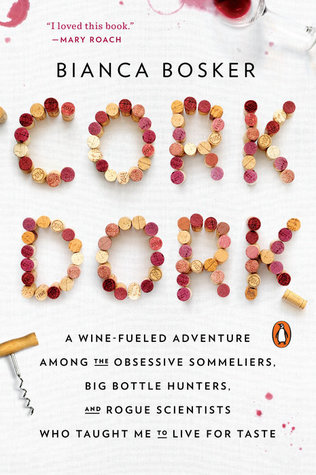More on this book
Community
Kindle Notes & Highlights
Read between
January 5 - April 1, 2020
“Wine,” declared the
nineteenth-century novelist Alexandre Dumas, “is the intellectual part of the meal.”
Morgan plunged into the five key attributes that make up the “structure” of a wine: sugar, acid, alcohol, tannins, and texture, also referred to as “body.”
Tannins are more a texture than a taste, and therefore distinct from whether the wine is “dry,” which refers to the absence of sweetness.
Opposites attract. Sweet wines play nicely with spicy foods; high-acid wines with high-fat foods; bitter, tannic wines with salt. A chicken’s honey-plum sauce got chilies;
great wine went beyond physical pleasure to move them at a level both intellectual and spiritual.
Good wine was transformational. It changed how he related to the world around him and how he saw life.
three key attributes that pros consistently consider when rating a wine: its balance, complexity, and finish.
In his 1825 Physiology of Taste, Jean-Anthelme Brillat-Savarin, one of France’s most committed hedonists, gushes that the inventor of the restaurant was, in his humble estimation, nothing less than a “genius.” “Whoever, having fifteen or twenty pistoles at his disposal, sits down to the table of a first-class restaurateur, that man eats as well as and even better than if he were at the table of a prince,”
“Service is the technical delivery of a product. Hospitality is how the delivery of that product makes its recipient feel,”
Wine exists only for you, or me, and it exists only in that instant. It is a private
epiphany in the pleasure of good company. So don’t let it slip by. Savor it. EPILOGUE The Blindest Tasting There was one final blind tasting test I needed to take.
results suggest that honing the senses is a prerequisite to fuller, deeper experience.
“The taster also needs to have a particular reason for tasting if he is to do so effectively.” Drink for thirst, but taste with purpose.
“The ability to choose what food you must eat, and knowingly, will make you able to choose other less transitory things with courage and finesse.”
Every person has the capacity to find and savor the soul that lives in wine—and in other sensory experiences, if you know to look for it.
Feeling something for wine and unleashing your senses begins by just paying attention. And applying yourself with gusto.


